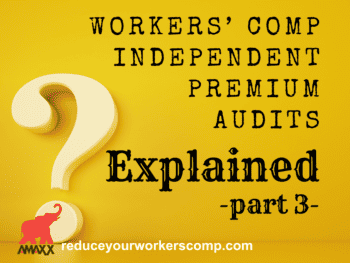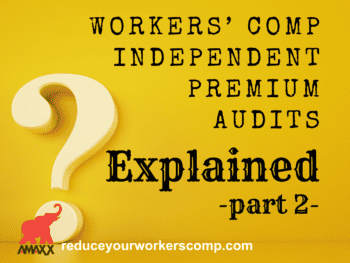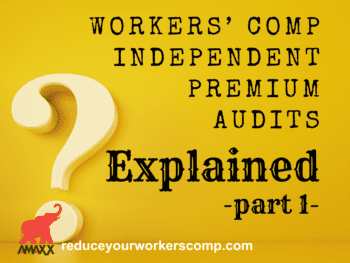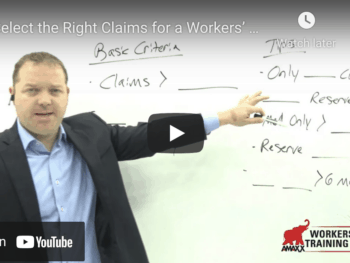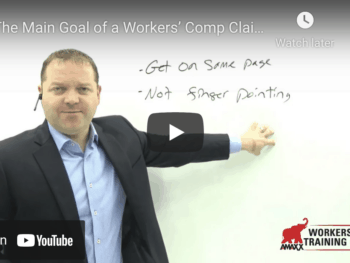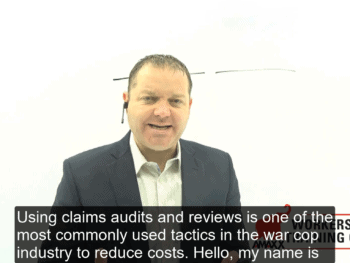As we start to approach the end of the year, it is a common time for adjusters to be bombarded with claim reviews from their various insured accounts. Agents/Brokers crave the need to know what is going on with certain high exposure or potentially high exposure claims and their associated reserves. Insured accounts want to know what lies ahead of them for the following calendar years. Insurers are looking to see what will hit the radar in the months to come and want to be certain they are prepared and reserves are set.
It is also a time for renewals, and insurers want to shine. They want to show said broker/agent how great they are, how prepared and dedicated their adjusters teams are, and they hope to gain a renewal in the process. The insurer is also hungry for new business from this agency/broker and it is a good time to show off how well they have performed since the last claim review.
The reality is the adjusters are usually ready at any given time. The reason why adjusters groan around this time of year is because the overall task of the claim review is daunting. If you look at it from the adjuster point of view, they have to write up numerous reports on the claim, review reserves for the millionth time, and explain to those in the audience why they did what they did, and the rationale to support their plan of action.
So what can everyone do to make this process run like a well-oiled machine?
The adjuster has to remember to look at things from the perspective of someone that has no idea what is going on
Claim professionals know claims. Chances are on high exposure claims they know a lot about the claim, especially if they have handled the claim from the start. However, at times adjusters will cloud over the details and skip to the meat of the claim. For example they will focus on where they want the claim to go within the next 4-6 months. Can they set the claim up to be closed? Is there a potential surgery out there that could have to be covered? Do they have arguments to dispute ongoing treatment, and if so, why? If a claim is denied or in litigation, what are the chances of a successful fight? Should we mitigate this claim towards settlement and be done with it? What are the pros and cons for each decision, and so on.
Instead of looking in the future and talking about just the prospective probable, the adjuster has to remember to put all of the pieces together for the claim review. How it started off, why certain things were completed or denied, the supportive case law for each decision etc. This way the audience gets the full picture of the claim. The last thing the broker or claim manager wants to hear on the call is an unprepared adjuster. A lot of questions will be thrown their way, and proper time has to be spent on the supporting details so everyone understands why the claim is where it is, and where it has to go, and why you need to support that stance going forward.
The claim or team manager has to review each file and be prepared to assist the adjuster when questions are asked
One irritating issue I hear on claim reviews will be questions brought up to the manager or team leader and they do not know the answer. This shows that they are not paying attention to the claim, and overall that they are unprepared. In this day of higher claim counts and less staff, everyone has to be ready to talk about every aspect of the claim. Especially if the adjuster brings up any issues where the adjuster had one set of ideas about the future, and the manager had a different path, and the current path is not one the adjuster fully supports. Showing conflict between the manager and the adjuster never bodes well in the end, so any issues need to be ironed out prior to the claim review. Everyone has to be on the same page.
The employer has to be prepared, ready, and knowledgeable
If the employer on the claim review is one of those employers who only gets their info from the claim review itself, then this review will last for days. Especially if you have to go over many files. The adjuster wants to gloss over the minimal details, and spend their time projecting where it is going. They do not want to spend an hour talking about the particulars of the claim that have no impact on the future. It is a waste of time for everyone.
If everyone does their homework, and everyone is prepared and ready, then a claim review is a great summary of what is going on. But if any of these aspects break down and nobody is really truly ready, then the claim review will turn in to a claim review marathon.
Author Michael Stack, Principal of Amaxx Risk Solutions, Inc. He is an expert in employer communication systems and helps employers reduce their workers comp costs by 20% to 50%. He resides in the Boston area and works as a Qualified Loss Management Program provider working with high experience modification factor companies in the Massachusetts State Risk Pool. As the senior editor of Amaxx’s publishing division, Michael is on the cutting edge of innovation and thought leadership in workers compensation cost containment. http://reduceyourworkerscomp.com/about/. Contact: mstack@reduceyourworkerscomp.com.
©2014 Amaxx Risk Solutions, Inc. All rights reserved under International Copyright Law.
SALES TO PAY FOR ACCIDENTS CALCULATOR: http://reduceyourworkerscomp.com/sales-to-pay-for-accidents-calculator/
MODIFIED DUTY CALCULATOR: http://reduceyourworkerscomp.com/transitional-duty-cost-calculators/
WC GROUP: http://www.linkedin.com/groups?homeNewMember=&gid=1922050/
SUBSCRIBE: Workers Comp Resource Center Newsletter
Do not use this information without independent verification. All state laws vary. You should consult with your insurance broker, attorney, or qualified professional.

